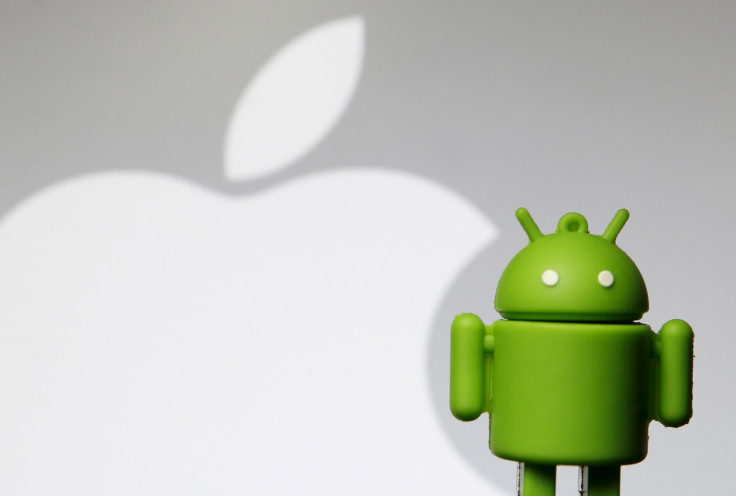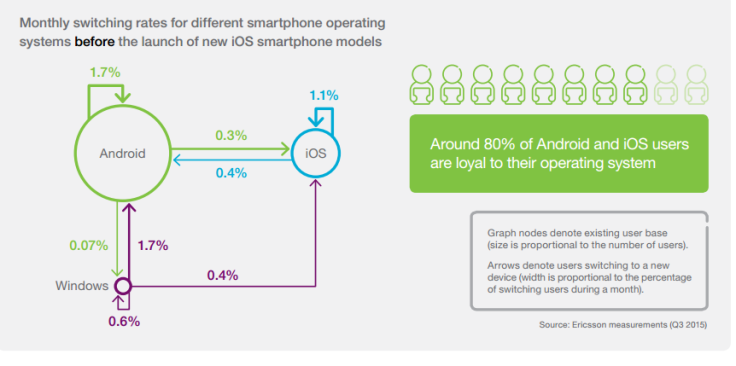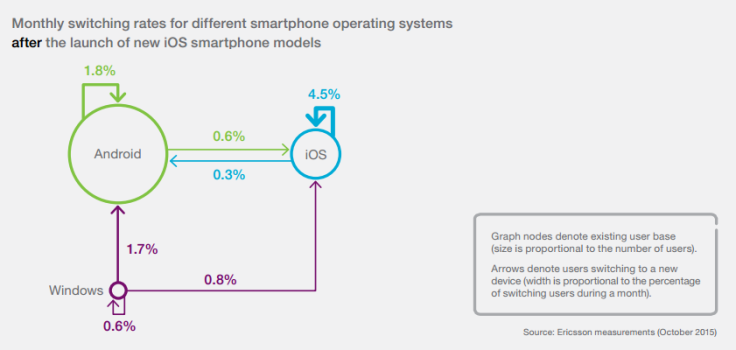Android, Windows Phone Owners Switch At Double The Usual Rate After A New iPhone Launch, Ericsson Study Finds

In the ongoing iOS vs. Android battle, the majority of smartphone owners in each camp stay loyal to the mobile operating system and ecosystem of their respective devices when they get a new phone. But the defector rate changes somewhat when a new iPhone comes along, according to new data from Ericsson’s mobility report published on Tuesday.
The study found that 80 percent of Android and iOS smartphone owners are loyal to their devices. Prior to the launch of a new iPhone, Android smartphone owners typically upgrade to a new Android device at an average rate of 1.7 percent per month, while 0.3 percent switch over to iOS. Apple users on average upgrade to a new iPhone at a rate of 1.1 percent, with 0.4 percent switching to Android, according to metrics taken by Ericsson in the third quarter of 2015.

But after the September launch of a new iPhone, the rate of iOS users upgrading to the latest Apple smartphone surged to 4.5 percent. At the same time, the rate of Android defectors to iOS doubled, to 0.6 percent. The same applied to Windows phone owners, whose switching rate to iPhone increased from 0.4 percent to 0.8 percent.

Compared to iOS and Android’s base, Windows phone owners are hardly loyal to their devices. Of users upgrading to a new device, only 20 percent switched to a new Windows smartphone.
Switching behaviors were also affected by the price of a device. “Owners of high-end models were much more likely to select a new model in the same series from the same vendor than users of lower-end models,” the report indicated. While Ericsson notes that that trend is apparent across all respective devices, that’s especially beneficial for Apple, which not only dominates the premium smartphone market -- devices over $400 -- but also takes 94 percent of the industry’s profits, according to Canaccord Genuity.
© Copyright IBTimes 2025. All rights reserved.





















